AUBURN — About 350 athletes from across the state tied on their snowshoes and skis, and braved below-freezing weather to compete in Special Olympics Maine statewide winter games held mostly at Lost Valley Ski Area this week.
The atmosphere was lively with athletes cheering and supporting each other.
With the ski lifts moving overhead, the athletes gathered with family and friends during the opening ceremony after 8:30 a.m. Thursday. They recited the athlete oath, followed by loud cheers. Then the torch was lit, kicking off a day of competitive snow shoeing, cross country skiing and downhill skiing.

Michael Kunn of Hope waits for his cross-country ski race to start Thursday during the Special Olympics Maine Winter Games at Lost Valley Ski Area in Auburn. Daryn Slover/Sun Journal
Athletes sprinted in snowshoes in 25-, 50-, 100-, 200- and 400-meter races to vie for a top spot. Cross country skiers hustled through a snowy track, competing in 25-, 50-, 100- and 500-meter races, along with a 1K race. Alpine and dual skiers could be seen gliding down the Lost Valley hill, maneuvering with seeming ease between track markers.
Even as some athletes fell while turning corners on the cross-country skiing track, lost shoes during the snowshoeing event or slid on icy sections of the downhill ski track, volunteers and other athletes cheered them on and offered words of encouragement to get up and finish the race.
Ashley Stasulis of Lewiston is attending the 2025 Special Olympics international competition in Italy to snowshoe with the national team, her first time traveling abroad. She considers it an honor and a privilege to represent Maine and her home community in an international sports competition. “I’m very excited,” she said. “I love snowshoeing.”
The Lewiston resident started competing in snowshoeing 17 years ago and has attended a national competition in Seattle, she said. She finds it relaxing.
Stasulis started competing in the Special Olympics in elementary school, according to her mother, Maureen Stasulis. The family moved to Greene, where she participated in the school district’s Special Olympic team until high school.

Lori Tani, left, and her sister, Dawn Rouillard, both of Enfield, head to the start area of the cross-country ski events Thursday during the Special Olympics Maine Winter Games at Lost Valley in Auburn. Daryn Slover/Sun Journal
There was no school-based team at the high school, so Maureen drove her daughter to competitions, where she was the only athlete from her school, Maureen said.
To train, Stasulis snowshoes, but she also does dry land training, which entails using the treadmill and elliptical, along with other gym equipment, Stasulis said. Because of all her training and preparation beforehand, the seasoned competitor was not nervous before her competition Thursday, but she was eager to participate.
“It’s like my mom and dad told me when I was growing up, just go out there and have fun and do your best,” she said.
Stasulis has made friends through the competition over the more than the decade and a half she has been participating, Maureen said. She enjoys watching Stasulis compete and have fun at the same time and she looks forward to watching her compete in Italy.
“To Ashley, it doesn’t matter that she doesn’t get the top places,” she said. “She absolutely enjoys competing, that is the fun. Being with all her friends and all these other people she’s met over the years and competing. … She’s competing with them and having a blast while doing it.”
Special Olympics Maine provides year-round sports training and competitions for children and adults with intellectual disabilities. The state winter games come after area winter games, though everyone in the state can compete in the state games.

Athletes compete in a snowshoe race Thursday during the Special Olympics Maine Winter Games at Lost Valley Ski Area in Auburn. Daryn Slover/Sun Journal
World games are held every four years and national games are held every two years. Individuals who earn gold medals in their state competitions can qualify to participate in national competitions.

Hunter Johnson, 16, of Morse High School in Bath competes in a snowshoe race Thursday during the Special Olympics Maine Winter Games at Lost Valley Ski Area in Auburn. “I did not go that fast,” he Johnson. “But, I did my best.” Daryn Slover/Sun Journal
Though Special Olympics Maine had originally planned to host snowshoeing and cross-country skiing Wednesday at Pineland Farms in New Gloucester, the organization had to postpone those until Thursday and rescheduled them at Lost Valley because rain washed away the snow at the farm.
The first competition was speed skating Wednesday at the Norway Savings Bank Arena in Auburn, along with a dinner and dance that evening at Edward Little High School, also in Auburn.
The state’s winter and summer games are a few of the sporting events the organization hosts every year, which also includes sailing and bocce, according to Caroline Cole, Special Olympics director of unified champion schools.
Sports and competitions are fun so it is easy to have a positive attitude when people are doing something they enjoy, she said. “It really is an easy way to have fun.”
Grace Giles of Boothbay glided down the side of the hill at Lost Valley with the grace of someone who has been skiing since childhood. The level four Alpine skier competes on the Boothbay Special Olympics Program team.

Ella Giles of the Maranacook High School Nordic ski team in Readfield chats with athletes Thursday during the Special Olympics Maine Winter Games at Lost Valley Ski Area in Auburn. The Maranacook Nordic team helped with the cross-country ski races. Daryn Slover/Sun Journal
Though the air was cold on her face as she was skiing downhill, she likes going fast, she said. She also enjoys the much slower ride up the mountain on the ski lift, taking in the scenery and views along the way.
“It’s fun actually,” she said. “It’s what we do.”
She has been competing in downhill skiing for 15 years since she was a young child, she said. The multisport athlete also competes in swimming, and track and field through Special Olympics.
Knowlyn Blake, 8, of Edgecomb, was not lacking confidence as he prepared to compete in the youth level one downhill skiing competition. “I am probably going to get first place because I know how to run and ski,” he said, while demonstrating his technique. Though the Boothbay Special Olympic Program team member did admit to a little nervousness.
Sophomore youth athlete Hunter Johnson, 16, competed with the Morse High School team from Bath in his first Special Olympics competition, led by Coach Charlie Bingham. Ahead of his snowshoeing competition Thursday, Hunter said he felt nervous and awkward but he kept reminding himself to just do his best.

Ashley Stasulis of Lewiston lights the Olympic flame Thursday to kick off the Special Olympics Maine Winter Games at Lost Valley Ski Area in Auburn. Auburn police officer Matt Dailey is at right. Daryn Slover/Sun Journal
“You don’t have to go fast, just go at your pace,” he said. “Do the best that you can, you don’t have to be perfect.”
Bingham said he thinks the competition teaches his students the ability to get comfortable with the uncomfortable. To prepare for the competition, his students do strength and conditioning classes three days per week, along with working in a weight room.
Hunter said he became interested in competing when he learned there would be travel associated with it, enticed by the opportunity to stay at a hotel. He spent more than two hours in the hotel pool the day before his competition.
Bingham said he thinks the competition holds value beyond sports, allowing kids to travel to and stay in different places, and meet new people. “I think it opens up a whole new world and gives them opportunities that they would have never had.”
Send questions/comments to the editors.


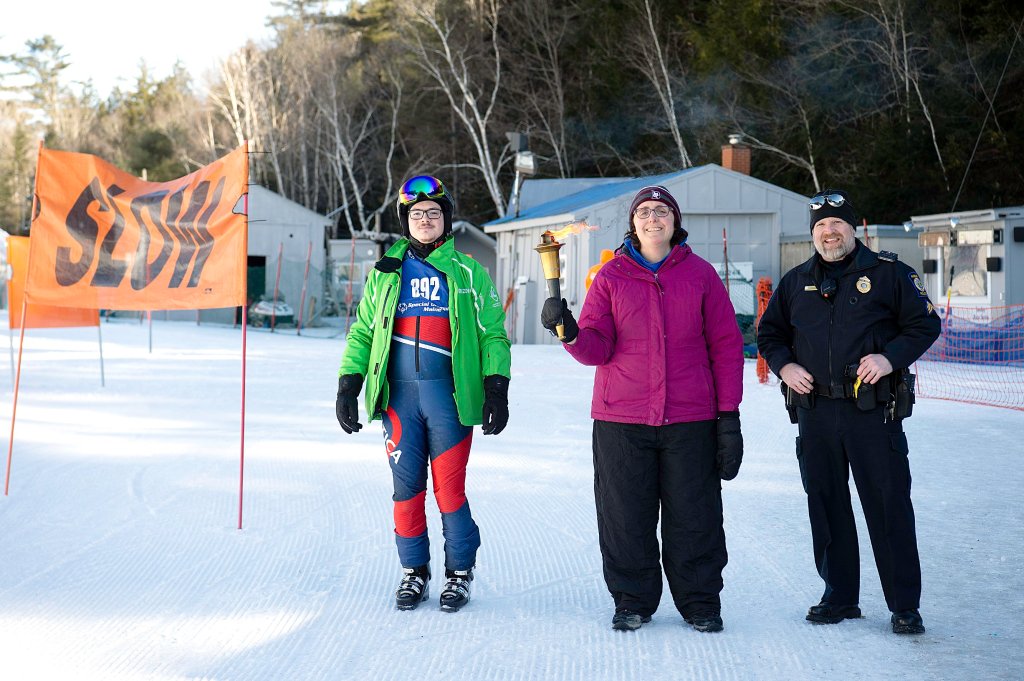
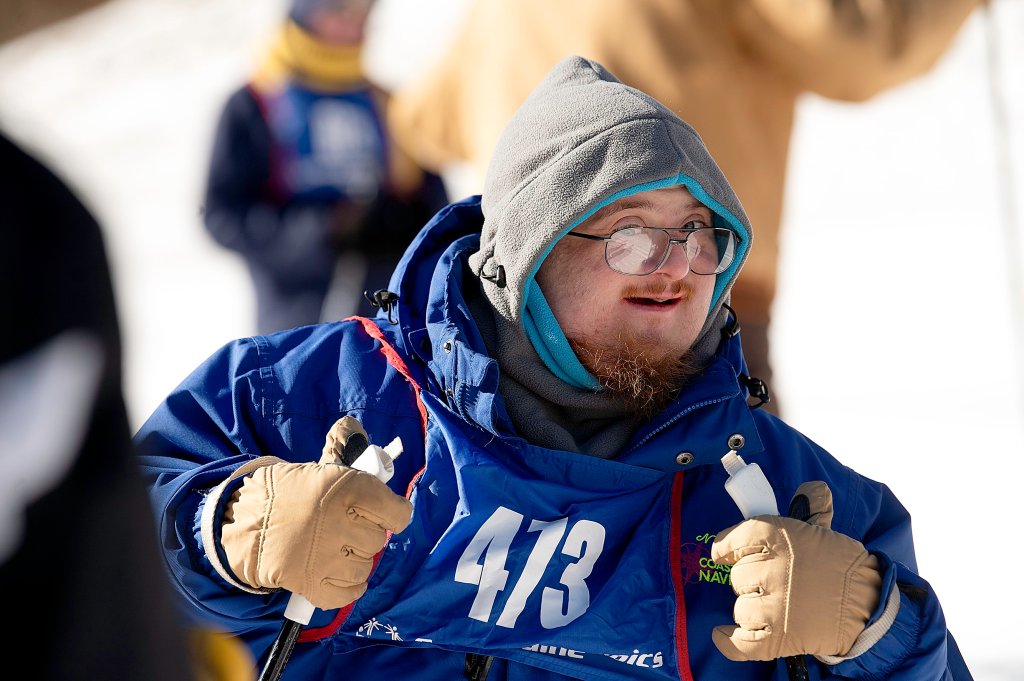
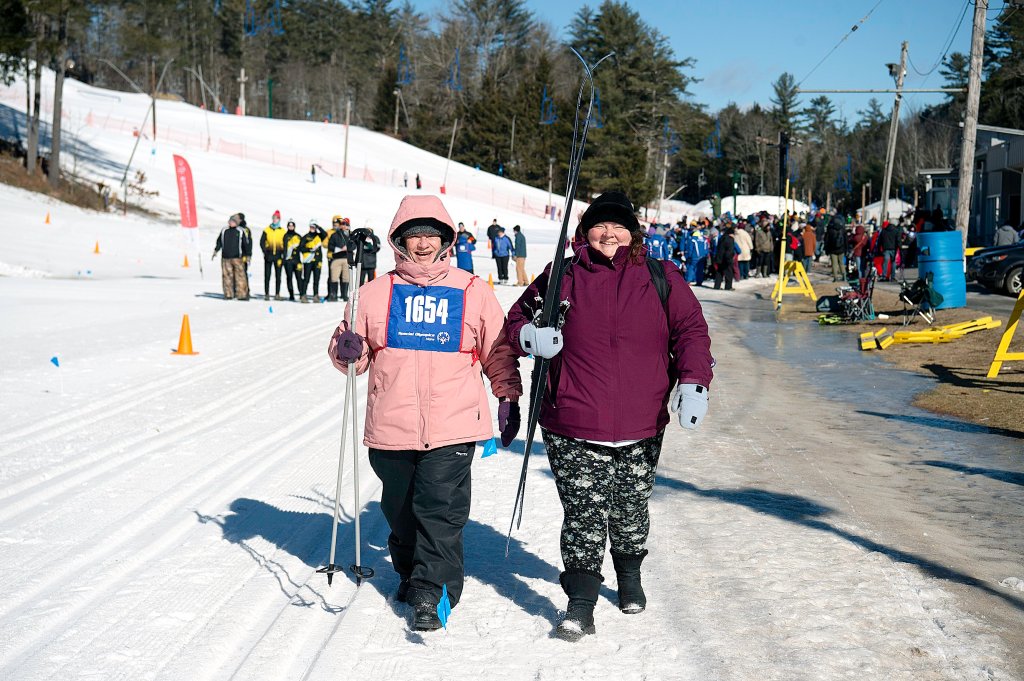
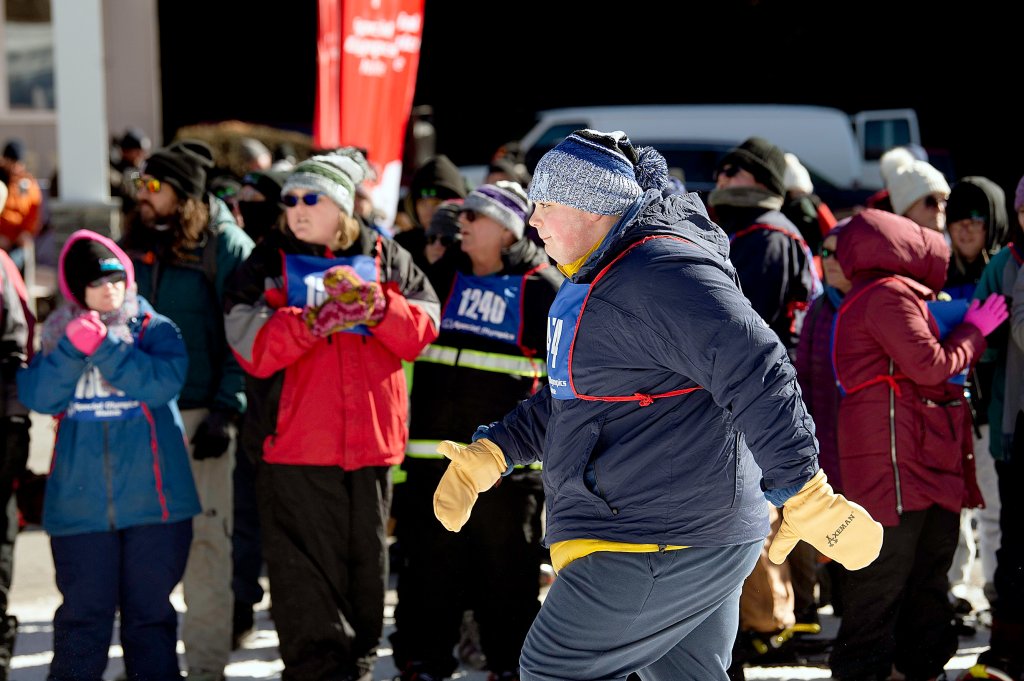
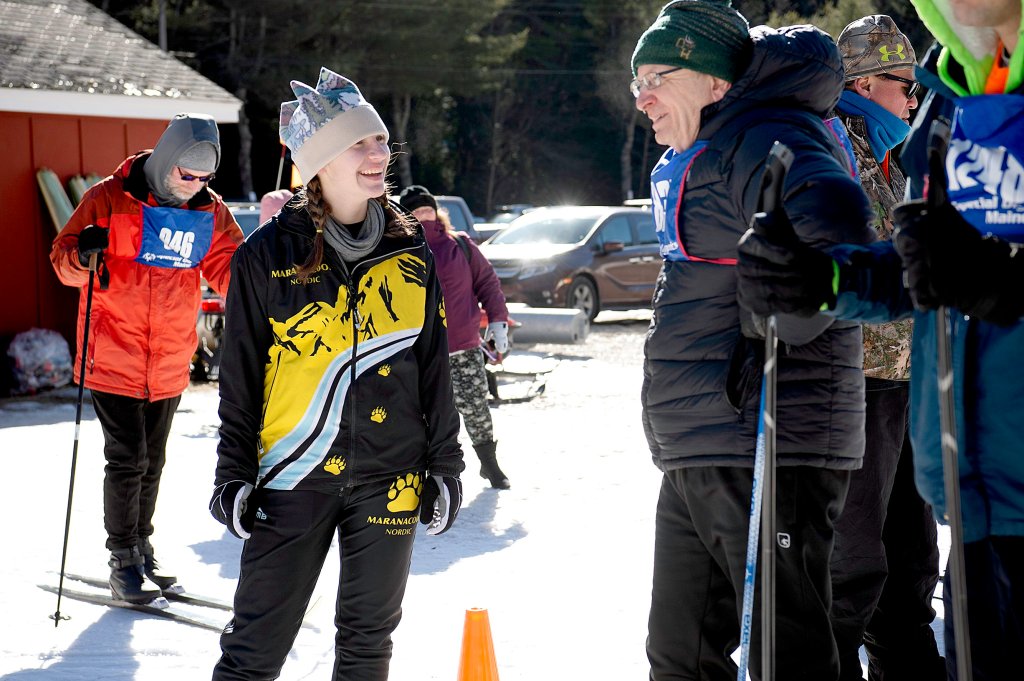
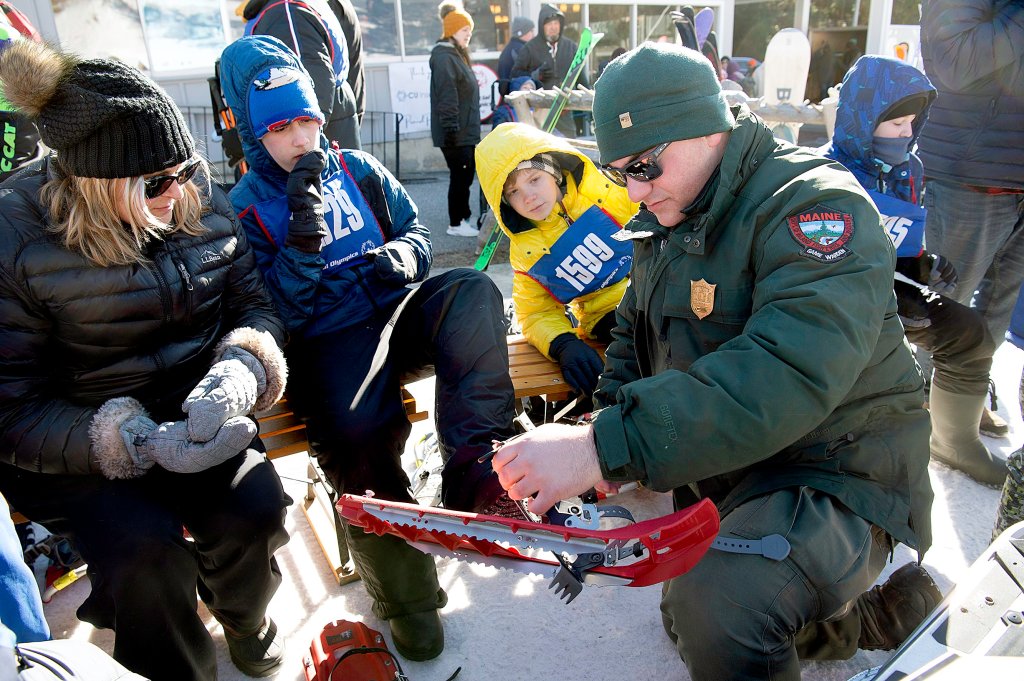
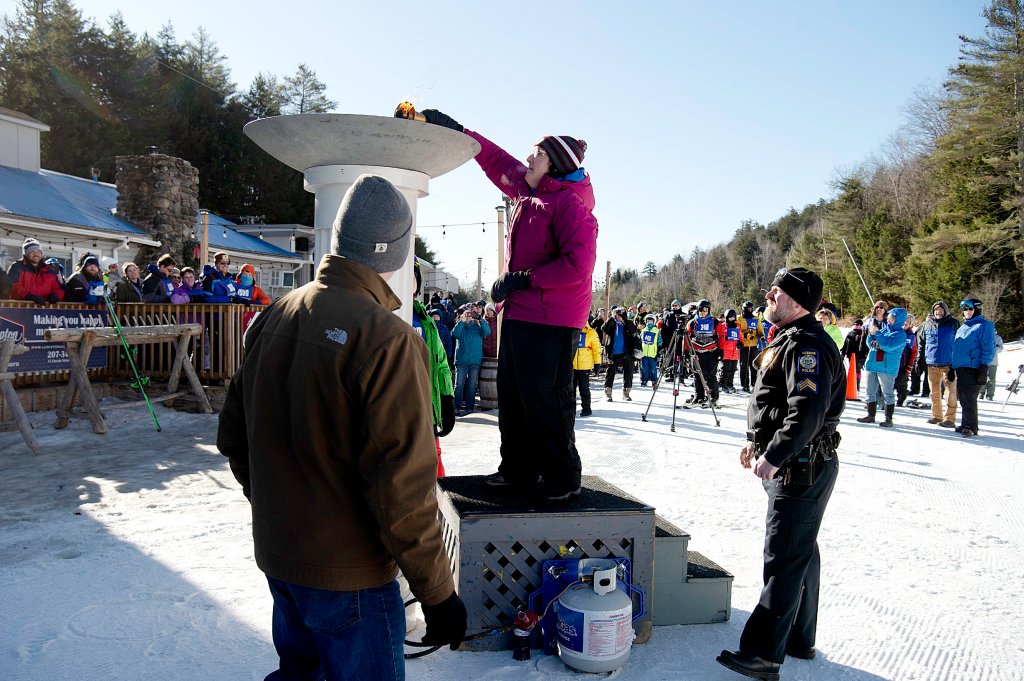
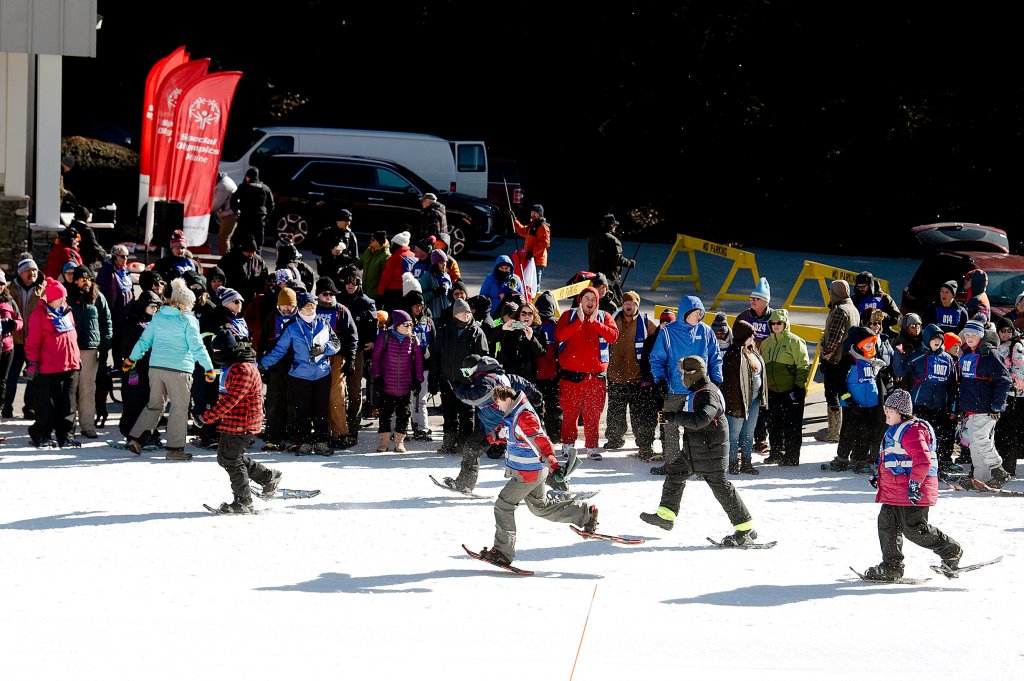

Comments are no longer available on this story